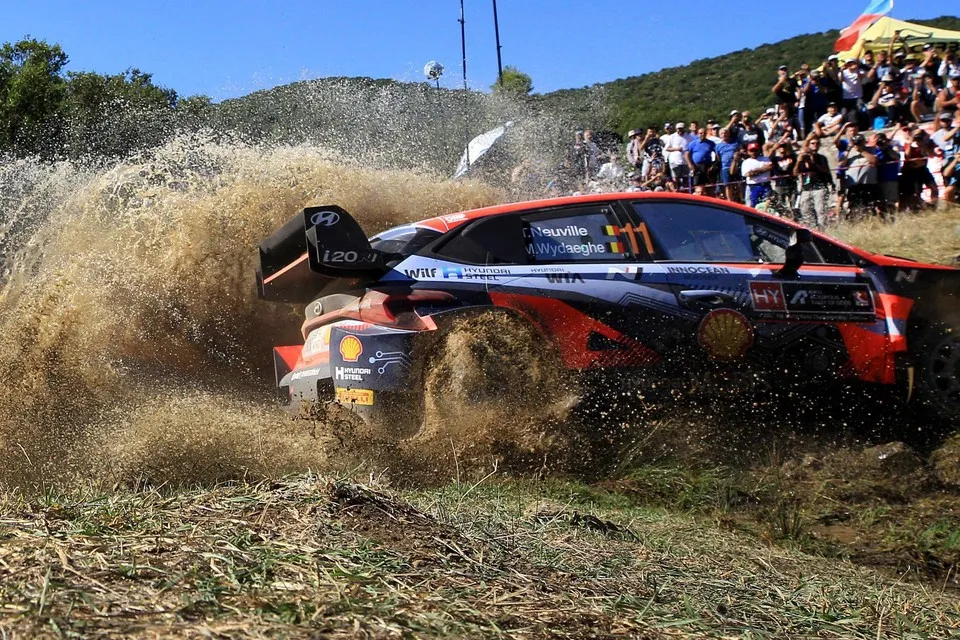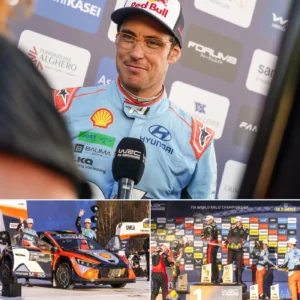Neuville has been highly critical of the WRC’s marketing strategy. Why can’t the WRC attract enough talented drivers

The World Rally Championship (WRC) has long been one of motorsport’s most prestigious competitions, boasting a rich history and a fan base that spans the globe. However, despite its legacy, the championship has recently come under scrutiny for its struggles to attract top-tier drivers. One of its most vocal critics, Thierry Neuville, has been highly critical of the WRC’s marketing strategy and the sport’s inability to draw in enough talented drivers. As the WRC looks to modernize and strengthen its presence on the global motorsport stage, Neuville’s concerns highlight deeper issues facing the championship.
Neuville’s Stance on WRC’s Marketing Strategy
Thierry Neuville, one of the leading figures in the WRC, has been vocal about the sport’s shortcomings, particularly when it comes to its marketing strategy. The Belgian driver believes the championship needs to do more to appeal to both established drivers and the younger generation of rally talent. Despite his own success and that of his peers, Neuville argues that the sport is not doing enough to make itself appealing to new talent or to retain the stars it already has.
Neuville’s frustration stems from the fact that the WRC, despite its global recognition and thrilling competition, fails to capture the attention of the wider public in the same way other motorsports like Formula 1 or MotoGP do. He suggests that the WRC’s marketing approach lacks the innovative flair and visibility necessary to attract the best and brightest young drivers. Neuville believes that more focus should be placed on creating an exciting narrative around the sport, both in terms of its challenges and its appeal as a career path for talented drivers.
The WRC’s Struggle to Attract Talented Drivers

One of the main issues Neuville raises is the WRC’s struggle to attract talented drivers from both established motorsport backgrounds and up-and-coming young talent. While the championship boasts experienced drivers such as Neuville, Sébastien Ogier, and Ott Tänak, it has had difficulty luring younger drivers into the fold.
The WRC’s limited appeal in comparison to other motorsports like Formula 1 or NASCAR could be a significant factor in this struggle. The F1 series, with its massive budget, high-profile teams, and extensive global exposure, has always been seen as the top destination for elite drivers. In comparison, the WRC’s marketability has been relatively understated. This disparity makes it difficult for the championship to compete when it comes to attracting the brightest rising stars.
Moreover, the lack of financial backing and sponsors in comparison to other high-profile motorsports can make the WRC less attractive to young drivers who are looking for both a lucrative career and the thrill of competing at the highest level. With the emphasis on traditional rallying over newer racing formats, the WRC sometimes struggles to keep pace with the rapidly changing motorsport landscape.
What’s at stake for the WRC’s future?
The future of the WRC depends on its ability to evolve and adapt to the changing landscape of motorsport. The lack of young, talented drivers coming through the ranks is a concerning issue that could impact the sport’s future success. As the likes of Neuville and Ogier prepare for the twilight of their careers, the WRC needs fresh blood to carry the sport forward and ensure that it remains relevant and competitive on the world stage.
If the WRC cannot attract the talented drivers it needs, the championship risks losing its competitive edge and relevance. This could result in a shrinking fan base and dwindling viewership, especially as fans turn their attention to other motorsports that are able to capture the zeitgeist of the modern era. For example, Formula 1 has made huge strides in appealing to younger audiences, especially through social media and influencer partnerships. The WRC needs to adopt similar strategies to stay competitive and engage with the next generation of fans.
How Can the WRC Attract More Talent?

To overcome these challenges, the WRC must focus on improving its visibility and creating more opportunities for young drivers to enter the sport. One way to do this is by investing in youth development programs and feeder series, similar to the systems used by Formula 1 and MotoGP. By providing a clearer path for young talent to progress from grassroots rallying to the highest level of competition, the WRC can attract more drivers who see it as a viable and rewarding career.
Additionally, the championship needs to rethink its marketing approach and boost its presence on digital platforms. A stronger social media presence, partnerships with influencers, and better storytelling around the drivers and events could help build excitement and grow the sport’s global fan base. Neuville himself has suggested that the WRC should adopt some of the tactics used by other motorsports to create compelling narratives around the races and the drivers themselves.
Finally, sponsorship deals and increased financial support are crucial for ensuring that young drivers have the resources they need to compete in the WRC. This can help reduce the financial barriers that prevent talented drivers from pursuing a career in rallying.
Conclusion: Can the WRC Secure Its Future?
As Thierry Neuville has pointed out, the WRC needs a new approach to attract talented drivers and secure its place in the future of motorsport. While the championship remains one of the most thrilling and prestigious in the world, it must adapt its marketing strategy to engage a broader audience and make itself a more attractive option for emerging drivers. The future of the WRC depends on its ability to evolve, and whether it can find the next generation of stars will determine its long-term success.






